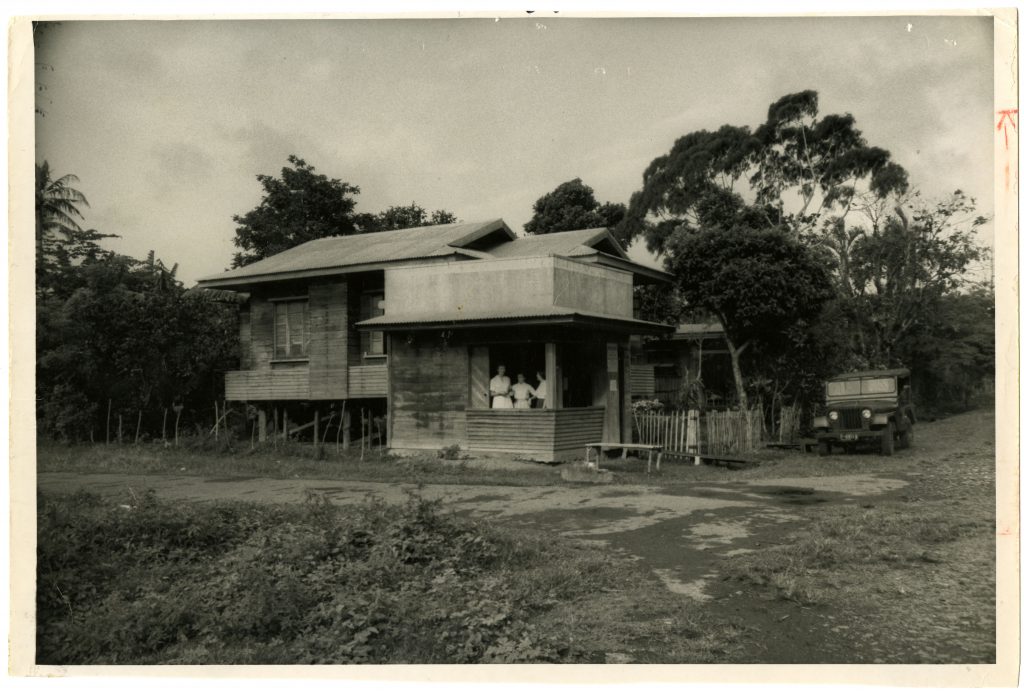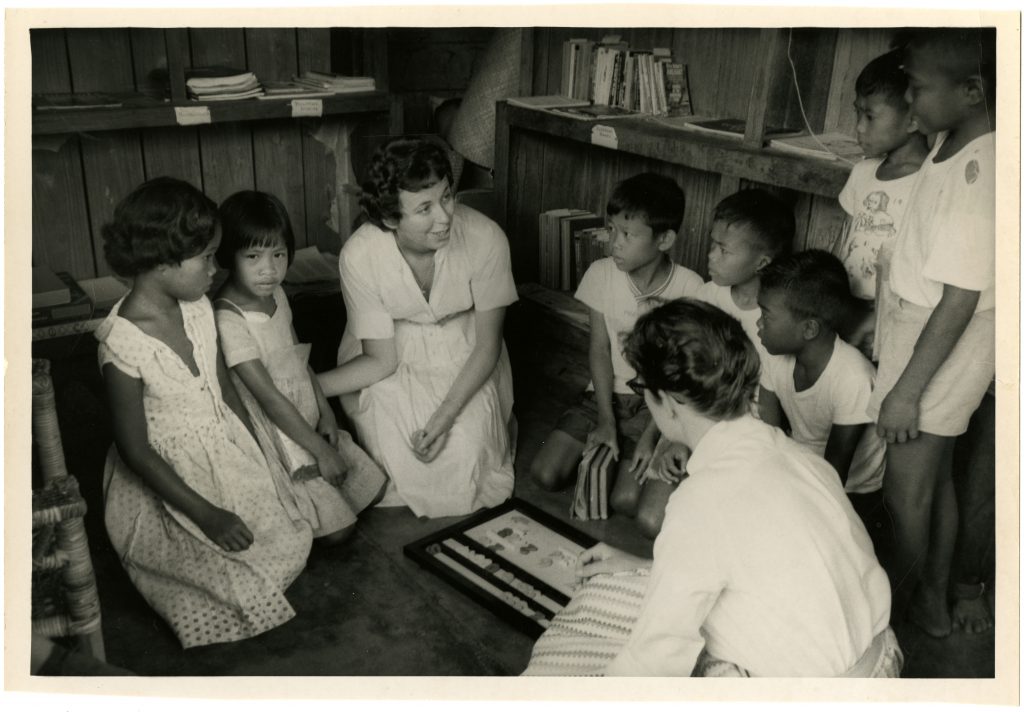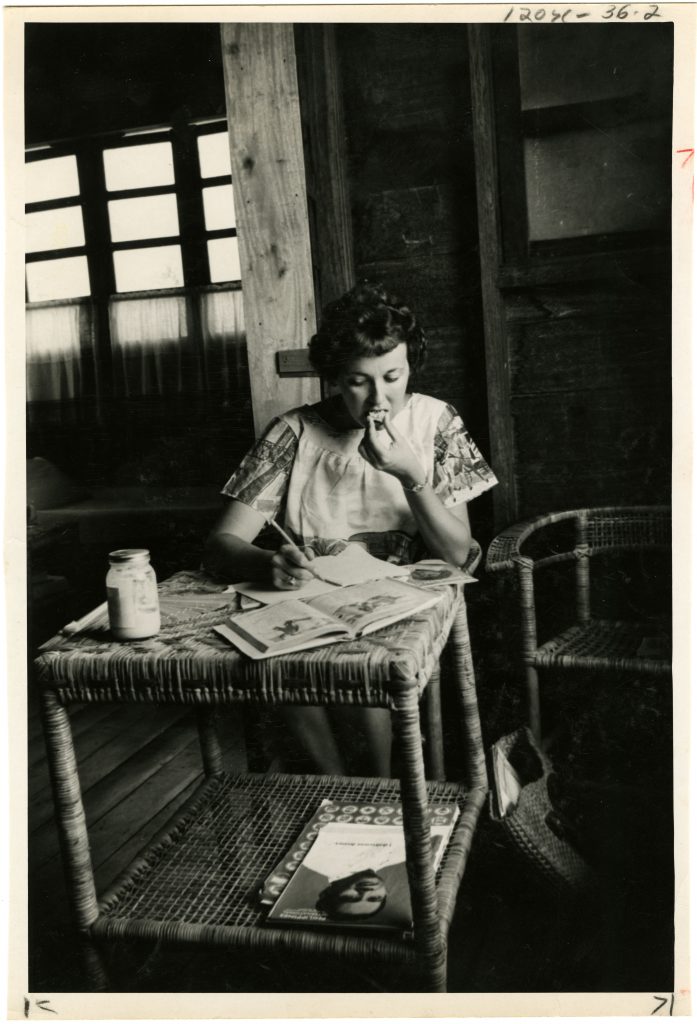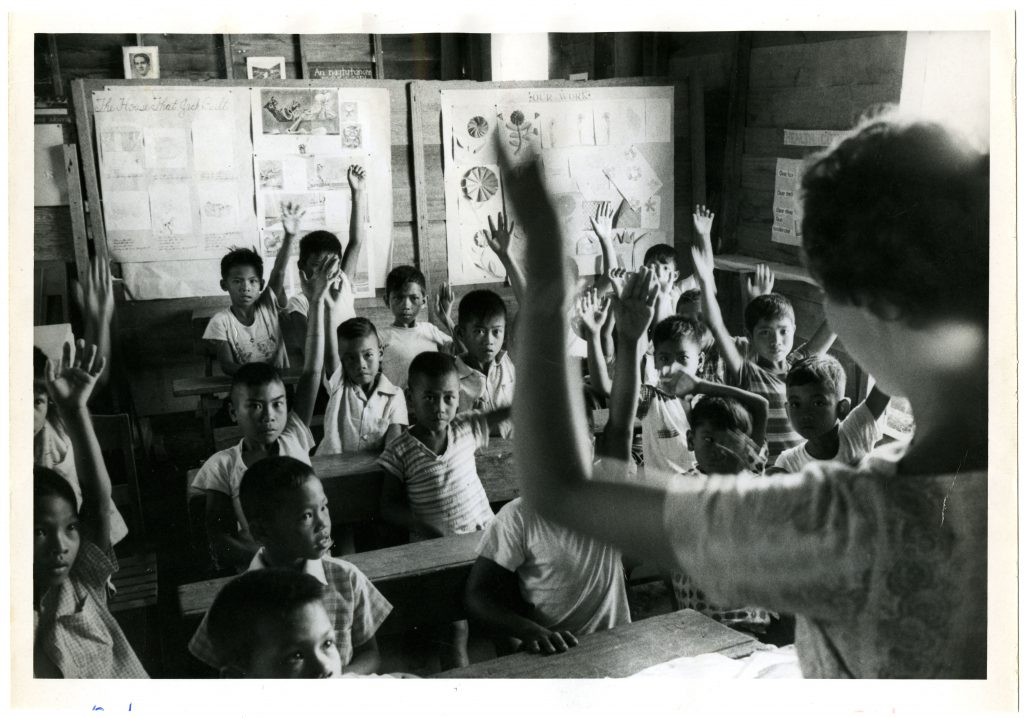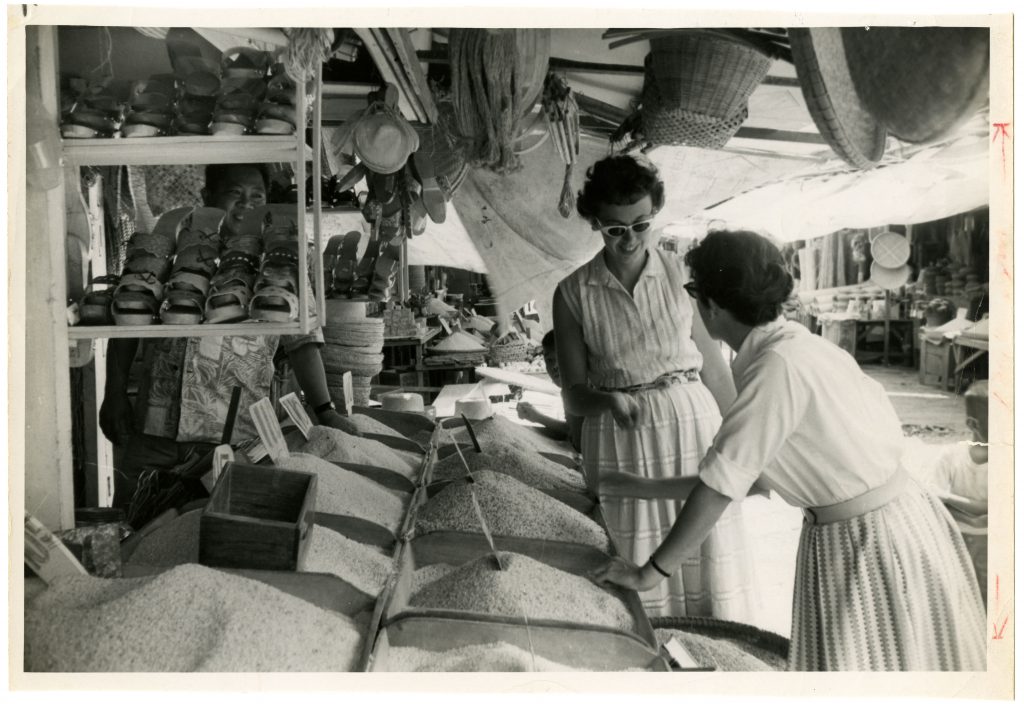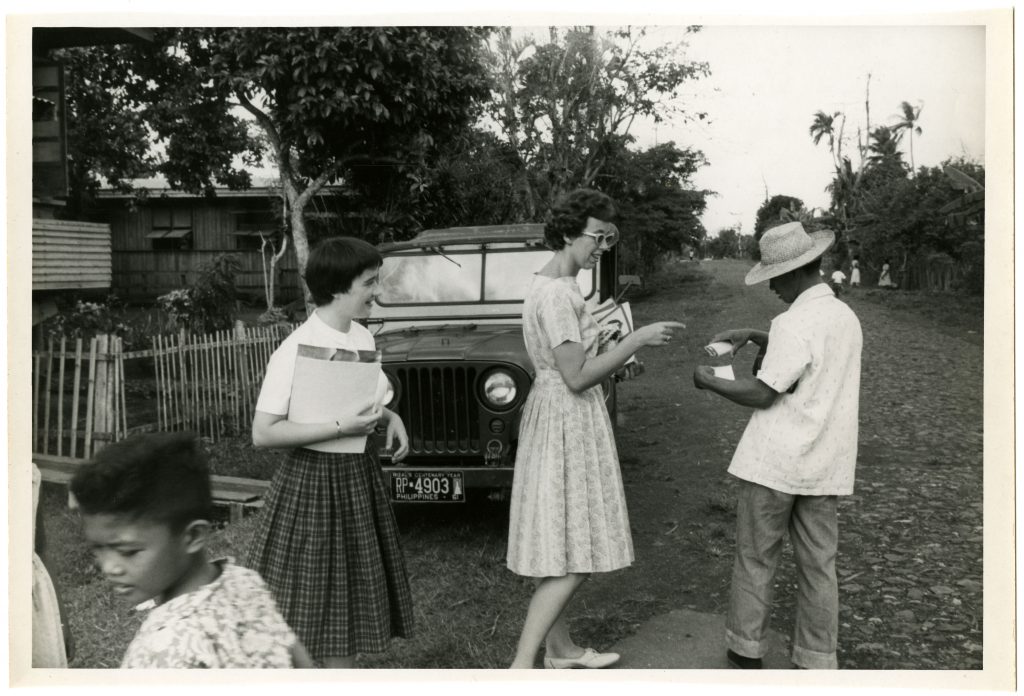Maureen Carroll served in the first group of Peace Corps Volunteers to the Philippines from 1961-1963. Carroll served as an English Teacher in Castilla, Philippines. Carroll previously worked for AT&T, who paid H.A. Figueras of Black Star Photography to come to her town in the Philippines and follow her around for a day to capture every angle of her life there. The photos show her housing, her transportation, in the classroom, in the market, at church, at the beach, and around town.
Carroll lived in Castilla with three other PCV roommates in the home pictured above on the left. The home had a tin roof and was raised on poles above the ground. There were three rooms, a sala or living room with a kitchen, a bedroom, and a bathroom.
Pictured here is the community library Carroll and her roommates fashioned out of the former store attached to their home.
Carroll and other Volunteers regularly used the local bus which also transported neighbors and their animals. Pictured here, Carroll and another PCV wait for the bus to arrive.
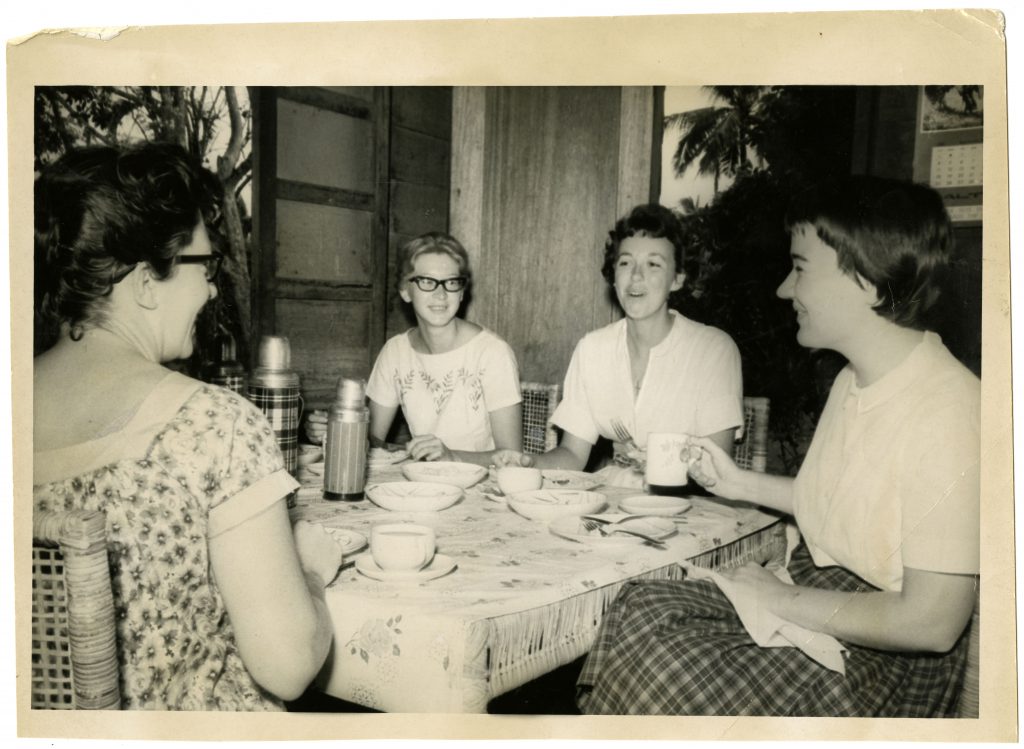 Maureen Carroll lived with three other roommates, Gloria Paulik, Hope Gould, and Anne Wilson. Here, Carroll and her roommates enjoy lunch in their living room.
Maureen Carroll lived with three other roommates, Gloria Paulik, Hope Gould, and Anne Wilson. Here, Carroll and her roommates enjoy lunch in their living room.
Pictured here, Carroll prepares her English lessons for her students. She co-taught with local teachers across multiple classrooms at Milagrosa Elementary School.
Carroll and her fellow PCVs taught local Filipino students both English and Science.
Peace Corps Volunteers in the Philippines purchased provisions from the local businesses. Carroll purchased rice from the market and canned corned beef, candles, soap, salt, and other small sundries from the sari-sari stores.
Like other PCVs, Carroll’s connection to family and friends back in the United States came in the form of mail. Pictured here, Carroll checks with the local mailman for her letters.
For more information on Maureen Carroll’s service, read her article “Not For Girls like You: A Jersey Girl’s Journey,” in Answering Kennedy’s Call: Pioneering the Peace Corps in the Philippines.
For more information, please visit the Peace Corps Community Archive website. To use the collections or make a donation, please contact the AU Archives at archives [at] american.edu.

